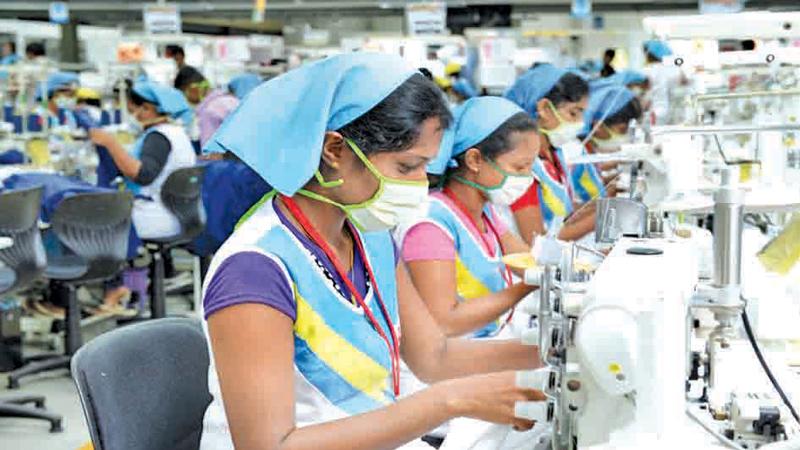
A just society is generally described as one which upholds liberty, equality, social justice, communal tolerance, peaceful existence and so forth. Sri Lanka is keenly aspiring to achieve this by applying virtuous behaviour such as honesty, courage, compassion and generosity while being obedient to the laws of the land. A 16th century philosopher Nicolo Machiavelli said, “I believe a just society stands with a strong leader that focuses on a unified cultural change in their country for the benefit of the people.” The statement corroborates that the leadership matters to create a virtuous society.
 The dream of every rational Sri Lankan is to have a righteous society and ensure shared prosperity for all. They aspire for freedom, equal justice and peaceful life through moral values. Even though the factuality of virtue is understood clearly by society as a whole, the pertinent question is whether the commitment to the realization of the dream is adequate.
The dream of every rational Sri Lankan is to have a righteous society and ensure shared prosperity for all. They aspire for freedom, equal justice and peaceful life through moral values. Even though the factuality of virtue is understood clearly by society as a whole, the pertinent question is whether the commitment to the realization of the dream is adequate.
Relentlessly escalating appalling lawlessness in the social order is a distinct obstruction to the efforts of creating a virtuous nation.
A critical and audaciously bold analysis, therefore, is an absolute necessity to circumvent further deterioration of society and improve the ethical mindset.
The media presents news of murder, drug related offences, sexual abuse, larceny, embezzlement and so on to the public as everyday occurrences.
The country has not seen a notable decline of heinous crimes during the past several years. President Rajapaksa’s pledge of a disciplined and law abiding citizenry can be realized only by minimizing the crime rate, by controlling the prevalent state of affairs related to criminal acts.
Individual financial solidity is a principal requisite of a free minded citizen.
The absence of financial stability hinders the rudiment of a just society. Regrettably, the overall financial growth of the country was utterly inconsistent due to various negative political factors; the main among them being politically influenced corruption and waste.
Public opinion on lawmakers and the legislature is now all time low, dipping further day by day, with a variety of conspicuous exploits of malpractice, indiscipline, and other immoral action. At present the biggest challenge that the President and the country confronts is how this menace could be prevented.
Television is the premium and the most effectual medium of communication to the masses. There are over 15 television stations in operation with even more channels operating in Sri Lanka. Of these channels, how many consciously provide useful air time for the benefit of the common people? It is a fact that many are making efforts to serve by way of CSR projects. However, it is no secret that these channels are in fierce competition with each other to boost their ratings. Therefore, the allocation of time for social welfare programs is questionable.
The majority of the Prime Time of almost all these channels is reserved for tele dramas and other entertainment related line ups. As the most effective communication medium, if these TV channels make a collective effort to educate people about freedom, equality, social justice and other related characteristics, the outcome would have a thriving impact.
Almost every television channel and radio station begins the day customarily with Buddhist teachings for which a considerable amount of air time is allocated. Furthermore, many dedicated religious channels are operated throughout the day and the night.
The religious places of worship that belong to these practising religions are always packed with devotees. All religions endorse and promote non-violence and moral behaviour.
Yet, the degree of impact of these worthy efforts is a question, compared to the escalation of violence and misdeeds in the country.
Although the country in general dreams of a virtuous society, it is a fact that since the beginning of mankind, no society has been ruled only by virtues and morals.
This is the reason, historically, the legal processes were brought into the civil society. Therefore, as Machiavelli suggests, a strong and fearless leader who upholds the law is essential to a country’s progress and prosperity.
The most crucial period in human life to inculcate moral values is the early childhood as per the specialists. Parents primarily, and teachers subsequently, lay the best foundation for a good moral code of conduct. Hence, educating parents and teachers to provide guidance with special emphasis on ethics is required as a child spends most of his or her time with parents and teachers during childhood and adolescence.
This endeavour would not only provide an enormous outcome but would create a virtuous future generation.
Perhaps, the enduring presence of the market economy with fierce competition also contributes to the deterioration of virtues of our society. The transformation of moral spirit to evil was seen entering society during the past 20 or 30 years primarily due to vicious competition.
Social and moral obligations were disregarded and gross selfishness settled in, resulting in indiscipline. As the economic model cannot be changed or challenged, the most effective way to instil moral ethics would be to educate the masses through every available means.
World Happiness Report 2019, compiled by the United Nations, places Sri Lanka disturbingly low, in the 121st position out of 147 countries.
The common dream of citizens of any country is to live happily and peacefully. With the best literacy rate in the region, Sri Lankans generally are an intelligent nation. Utilizing this unique advantage, a collective and conscious effort should be made by the Government, the media and politicians, as well as fellow countrymen to build a more prosperous nation.
